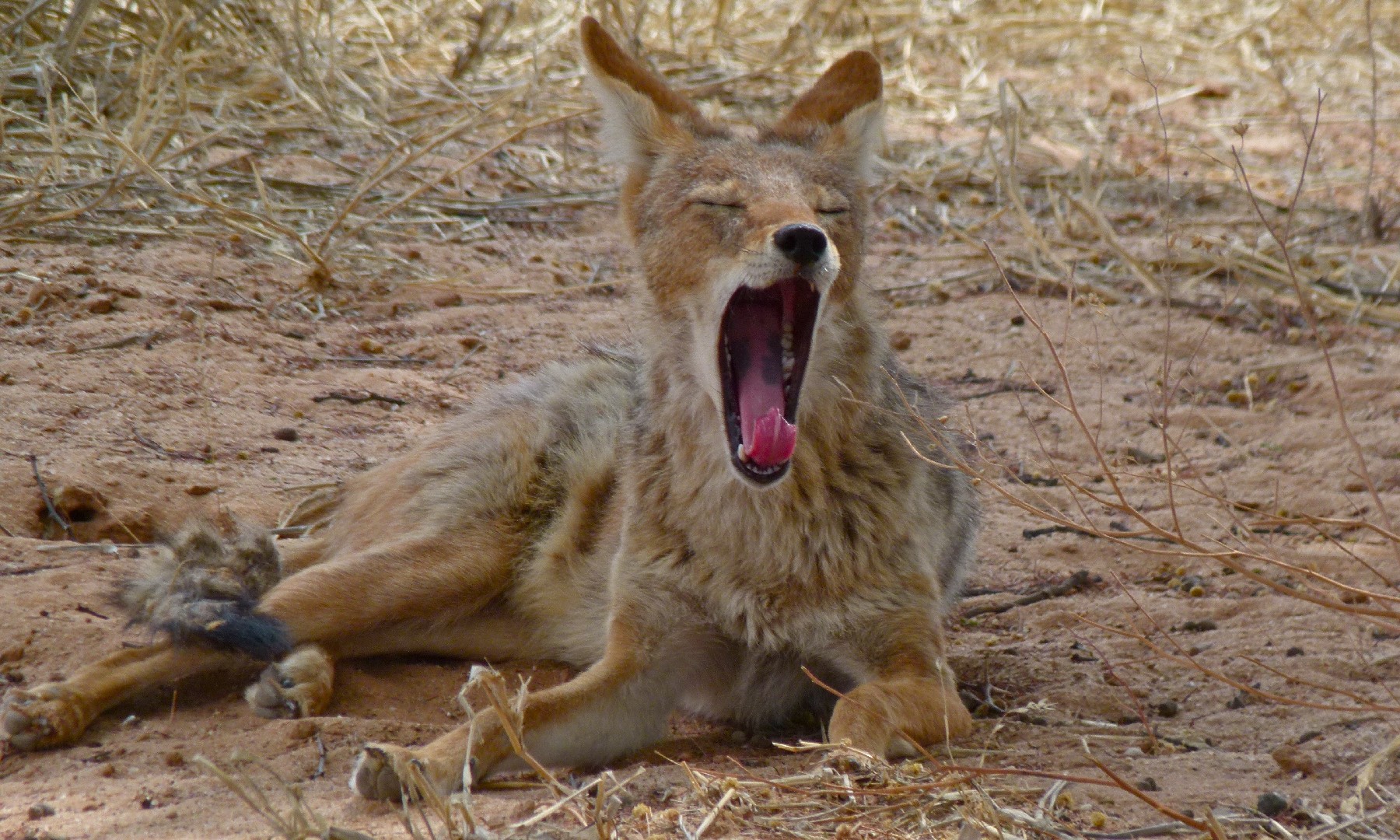Cape black-backed jackal
A species of Wolves jackals and allies Scientific name : Canis mesomelas mesomelas Genus : Wolves jackals and allies
Cape black-backed jackal, A species of Wolves jackals and allies
Scientific name: Canis mesomelas mesomelas
Genus: Wolves jackals and allies
Content
Description General Info
 Photo By Bernard DUPONT , used under CC-BY-SA-2.0 /Cropped and compressed from original
Photo By Bernard DUPONT , used under CC-BY-SA-2.0 /Cropped and compressed from original Description
Cape black-backed jackal demonstrates a highly social behavior, living in monogamous pairs or small family groups. Their nocturnal lifestyle aids in hunting small mammals, highlighting their role as a predator in the ecosystem. Cape black-backed jackal's distinctive communication strategies, involving complex vocalizations, assist in territorial defenses and bonding within groups.
General Info
Lifespan
6-13 years
Diet
Cape black-backed jackal has an omnivorous feeding practice, primarily dependent on rodents. Its dietary habits also include birds, reptiles, invertebrates, and fruits when available, demonstrating significant adaptability to food availability.
Appearance
Cape black-backed jackal is a medium-sized canid, distinct for its black back and tail complemented by white undersides and tan-colored legs. Its shape is slender, with a bushy tail ending in a white tip. Covered in dense fur, it boasts a pointy face with small, round ears and sharp canine teeth. Males are slightly larger and heavier than females.
Behavior
Cape black-backed jackal is a nocturnal and social animal, living in large, complex groups called clans. Its intricate social hierarchy relies on vocal communication and scent marking to establish dominance. Notably, cape black-backed jackal exhibits cooperative foraging and rearing of offspring behavior, and occasionally exhibits mobbing behavior against predators.